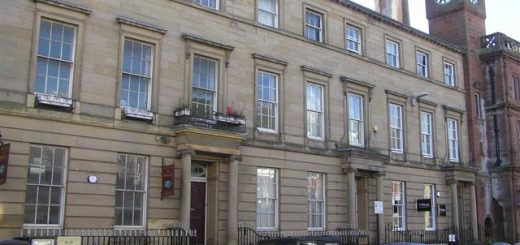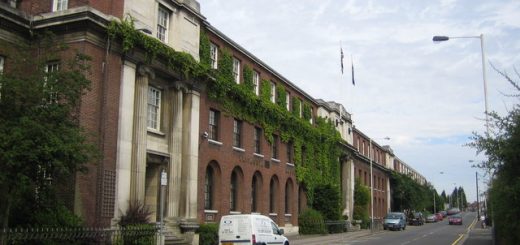Mesmerism
Mesmerism was popular in the 19th century. But did it have any real value or was it just (quote) ‘a bit of medical quackery developed in the 18th century by the German physician Franz Anton Mesmer (1734-1815)’
http://skepdic.com/mesmer.html
Mesmerism was popular in the 19th century. But did it have any real value or was it just (quote) ‘a bit of medical quackery developed in the 18th century by the German physician Franz Anton Mesmer (1734-1815)’
http://skepdic.com/mesmer.html
I only ask because I found a Topham (probably not related) involved in it.
[quote]The English Mesmerists by Frank Podmore
"The first considerable operation performed in England in the mesmeric trance took place in 1842 at Wellow, in Nottinghamshire, the patient being one James Wombell, whose leg was amputated above the knee. Mr. Topham, a London barrister, was the Mesmerist, and the operation was performed by Mr. Squire Ward, M.R.C.S. An account of the case was read before the London Medical and Chirurgical Society at their meeting on November 22nd, 1842. The paper was received with much disfavour, many of the medical men present expressing their opinion that the alleged insensibility was simulated, and that Wombell had been trained to bear pain without betraying any signs of it. In the interval before the next meeting the authors published the paper on their own account,(22) and the Society gladly took advantage of this breach of etiquette to expunge all notice of the discreditable transaction from their minutes. But this was not enough for the opponents of Mesmerism. It was freely stated by medical men in the public Press and elsewhere, whenever the subject of Mesmerism was under discussion, that James Wombell had subsequently confessed to a wicked deception; that he had in fact felt the whole pain of the operation, but to gain his private ends had successfully concealed his feelings at the time. Elliotson took the trouble in 1843 to get a statement signed by the man himself and witnessed by the clergyman of the parish, giving the lie to the slander(23) Eight years later it was revived. At a meeting of the same Society on December 10th, 1850, Dr. Marshall Hall "begged leave to communicate a fact of some interest to the Society … He understood that this man (Wombell) had since confessed that he had acted the part of an impostor." Mr. Topham wrote to ask Dr. Hall for his authority. Dr. Hall replied, "The fact … was communicated to me by a gentleman whom I have known for the third part of a century, and whom I regard as among the most honourable and truthful of men." Dr. Hall refused to give up the name of his informant "without reserve," and he concluded his letter by calling upon Mr. Topham to take note:
(20) "Lancet", Sept. 15th, 1838.
(21) "Zoist", Vol. i. p. 209. For other illustrations of the incredulity with which the facts of hypnotic anaesthesia were first received by medical men, see Moll, "Hypnotism" (English trans., London, 1890), P. 329.
(22) "Account of a case of successful amputation of the thigh during the mesmeric state". London, 1843.
(23) "Zoist", Vol. i. p. 210.
"That I shall never cease to raise my voice against everything derogatory to my profession, whether originating unhappily within its ranks, or coming intrusively from without. That I am of opinion that, in these days of multifarious folly and quackery, every member of my profession is called upon in honour to do the same.
"That you will be pleased to consider this as a final communication."
Dr. Hall, however, wrote to his informant, asking him upon what evidence he had made the statement, and published in the "Lancet", together with a copy of the above-cited letter to Mr. Topham, the following extract from his still unnamed correspondent’s reply:
"The confession of the man was distinctly and deliberately stated to me by a person in whom I have full confidence. It was in Nottinghamshire that I was told the fact, last August, and I fully believe it."
Dr. Marshall Hall had perhaps heard in his youth that a statement could be established in the mouths of two or three witnesses, and may have thought that he was fulfilling the Scripture by multiplying the links in his chain of anonymous tradition. The evidence, in fact, seems to have been good enough for the Medical and Chirurgical Society, for at a later meeting the president refused to hear Dr. Ashburner and Dr. Cohen when they rose to refute the slander; and the Lancet and other papers, in reporting the incident, expressed approval of the chairman’s firmness and impartiality.(24)
(24) "Lancet", Dec. 28th, 185o, and March 1st, 1851. See also "Zoist", vol. ix. pp. 88-106, where a full account of the incident is given.
Such, then, was at this time the attitude of the medical Press and the articulate members of the profession to Mesmerism. Some doctors even went further, and whilst denying the reality of Mesmerism, did not scruple to state that Mesmerists habitually used their influence for the basest purposes. (25)
(25) See, for instance, the "Harveian Oration" for 1848, by Dr. Francis Hawkins; and Elliotson’s comments, "Zoist", vol. vi. PP. 399-405. Similar charges are frequently made in the medical literature of the time."[/quote]




Recent Comments